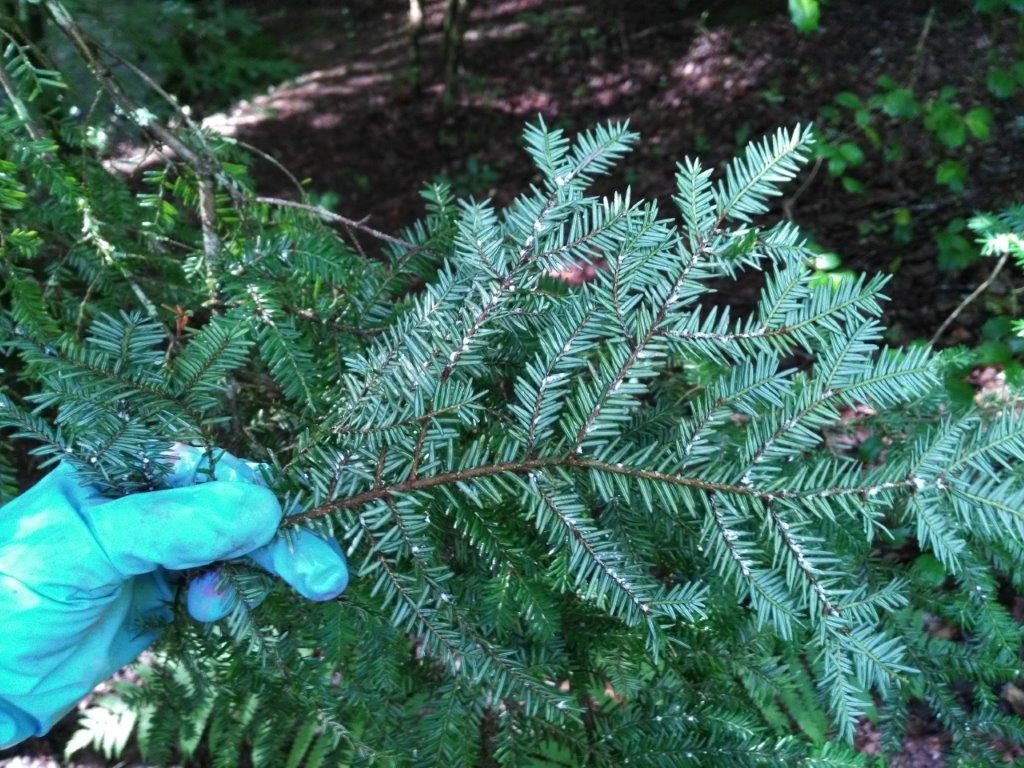
Possibly because of a tiny Dracula…
The Eastern Hemlock and the Carolina Hemlock, which inhabit many of our Tennessee forests and landscapes, are being attacked by a small, aphid-like pest known as the Hemlock Woolly Adelgid (HWA). This pest, a native of Asia, is wreaking havoc among Hemlock populations throughout the eastern United States from Maine to Georgia, often killing trees within 3-10 years of infestation if left untreated.
The Hemlock Woolly Adelgid ( Adelges tsugae) gets its name from the waxen, wool-like filaments that surround it and its ovisac (or egg sack). The woolly covering retains moisture and protects the adelgid and its eggs from natural predators. These fibers are most easily recognizable between fall and spring, when the adelgid is laying eggs. Basically, the bugs look like tiny, fuzzy cottonballs coating the underside of the Hemlock twig. This is where the adelgids are slowly sucking the life out of the Hemlock like vampires, feeding on the sap at the base of the needles. The bugs are all females that clone themselves, producing more adelgids that then float over to devour other hemlocks nearby. This causes needles to brown, and the tree to die slowly from the top down.
If treated appropriately, infestations of HWA can be controlled, and trees can be saved. Re-treatment is recommended every 2 to 5 years depending on the size and location of the tree, and the severity of the infestation. It is also recommended to preventatively treat Hemlocks that aren’t yet showing signs of infestation, as HWA spreads easily and rapidly to surrounding trees (floating, cotton ball vampires).
If you suspect a Hemlock Woolly Adelgid infestation in your trees, contact the seasoned professionals at Panther Creek Forestry, LLC. Their team of foresters and biologists are certified pesticide applicators, and will evaluate your Hemlocks to create a treatment and maintenance plan specific to your property and budget. Call or click “request a quote” to speak with us about HWA control, or any of your other forest needs and concerns.
comments +